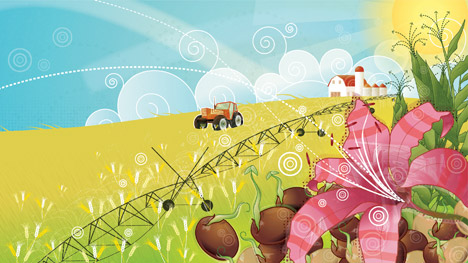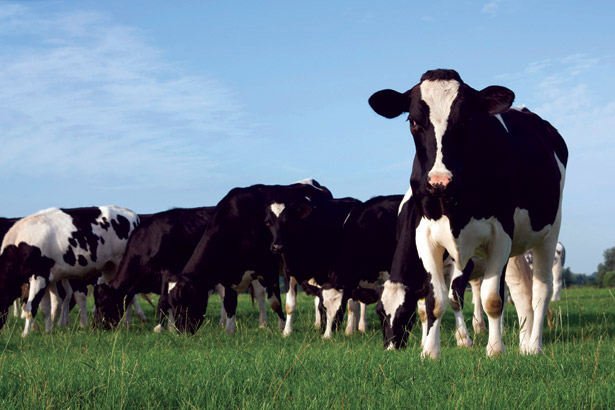Agricultural Engineering

Like to eat? Give thanks to agricultural engineers. They mix cutting-edge science with the art of farming to keep us well-fed with foods that are safe, nutritious and tasty. Agricultural engineers will never be at a loss for career choices because the number of industries that require their skills is vast.
Make a Difference!
Agricultural engineers are experts in biosystems, so many specialize in finding ways to protect the environment. Some, for example, work to conserve supplies of fresh water, while others develop methods to safeguard the Earth from pollution, including chemical or nutrient runoff from farms. Agricultural engineers are also involved in developing biofuels from algae — that’s right, pond scum — a process that doesn’t need arable land, which is put to better use growing food crops.

Did you know?
Agricultural engineering isn’t limited to planet Earth. NASA uses agricultural engineers to develop systems to grow food in space. One NASA project is developing hydroponic techniques—the science of growing food in water without soil—that will keep some future human colony on Mars well-fed.

Where Do They Work?
Agricultural engineers will never be at a loss for career choices — the number of industries that require their skills is vast. Here are just a few examples: farm equipment manufacturers (John Deere, International Harvester); seed companies (Pioneer Hi-Bred, Monsanto); food producers (Kraft, Kellogg’s); environmental engineering firms (Mock Roos and Associates); forest product companies (Weyerhaeuser).
 Meet an Engineer!
Meet an Engineer!
Cara Cowan Watts is working on her doctorate in biosystems engineering at Oklahoma State’s Stillwater campus. Her dissertation focuses on plant and wild-life issues in the lakes and rivers of her community.
COOL FACT: Watts also finds time to push for new and expanded science, technology, engineering, and mathematics (STEM) education programs in Cherokee Nation schools. One current program is a STEM summer camp for Cherokee kids.
Find out the latest agricultural news!
Agricultural engineers are experts in biosystems, so many specialize in finding ways to protect the environment. Some, for example, work to conserve supplies of fresh water, while others develop methods to safeguard the Earth from pollution, including chemical or nutrient runoff from farms. Agricultural engineers are also involved in developing biofuels from algae — that’s right, pond scum — a process that doesn’t need arable land, which is put to better use growing food crops.
Filed under: Agricultural, Explore Engineering
Tags: Agricultural








